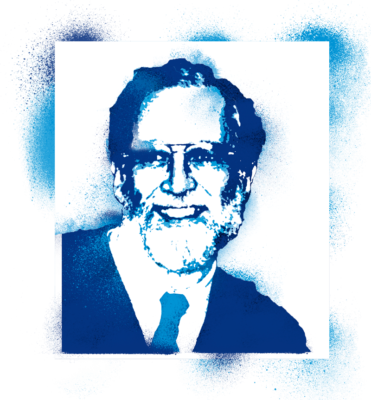Outstanding Qualifications, Wrong Views

Dr. Martin Gaskell is an astrophysicist who specializes in supermassive black holes. He had been an instrumental part of the University of Nebraska’s student observatory project. So when the University of Kentucky (UK) embarked on a similar project a few years later, they reached out to Gaskell for advice. Gaskell then applied to head the observatory in 2007, when the university was ready to hire someone. He was considered a leading candidate with outstanding qualifications, but he was eventually passed over for a much less qualified applicant.
Search committee members were worried that Gaskell was a “creationist” Christian who was skeptical of evolution. As documented in a deposition, one member says she heard that Gaskell endorsed some nonmainstream views about evolution, and did an internet search on him to turn up information about Gaskell’s “approach to blending of science and religion.” She came up with lecture notes for Gaskell’s talk entitled Modern Astronomy, the Bible, and Creation. The committee member sent this on to other committee members, warning that Gaskell was “potentially evangelical.” Ironically, Gaskell basically identified himself as a supporter of theistic evolution in this document, noting that he has no theological problem with evolution and criticizing young earth creationists for “poor science.” At the same time, Gaskell respectfully mentioned (without endorsing) the works of proponents of intelligent design Michael Behe and Phillip Johnson, and he acknowledged that “there are significant scientific problems in evolutionary theory… and… these problems are bigger than is usually made out in introductory geology/biology courses.” Gaskell’s brief acknowledgment that there are some scientific problems with Darwin’s theory was apparently too much for faculty at the University of Kentucky.
As the district court later noted, the chair of the search committee wrote in an email to another faculty member:
It has become clear to me that there is virtually no way Gaskell will be offered the job despite his qualifications that stand far above those of any other applicant. Other reasons will be given for this choice when we meet Tuesday. In the end, however, the real reason why we will not offer him the job is because of his religious beliefs in matters that are unrelated to astronomy or to any of the duties specified for this position. (For example, the job does not involve outreach in biology.). . . If Martin were not so superbly qualified, so breathtakingly above the other applicants in background and experience, then our decision would be much simpler. We could easily choose another applicant, and we could content ourselves with the idea that Martin’s religious beliefs played little role in our decision. However, this is not the case. As it is, no objective observer could possibly believe that we excluded Martin on any basis other than religious. . . . [p. 14]
When the University of Kentucky ended up hiring someone else who was much less qualified, a professor who had been part of the process (but not on the search committee) filed an internal complaint. During the initial investigation by the university, the chair of the search committee’s made a damning admission:
I was part of the entire process that led to this decision. I know what observatory committee members said in meetings and privately, not just their e-mail comments. I know that the university… chose an applicant with almost no relevant experience over one with immense experience in virtually every aspect of the observatory director’s duties. And I know that this choice was made (to a significant extent) on grounds that have nothing to do with the job as advertised nor with the job as envisioned by our department. [p. 14]
The chair later tried to retract part of this admission, and the university ultimately refused to acknowledge that it had illegally discriminated against Gaskell. So Gaskell filed suit in federal court. In January 2011, he settled with the university for $125,000—approximately the financial loss he incurred because he was not hired. After the settlement, Gaskell’s lawyer commented:
The standard of suspicion—rightly described as a ‘McCarthyism of the Left’ by one UK professor—applied by some to Gaskell because of his religious writings and statements should have no place in universities of all places… The ease with which some of the people involved in this process were willing to tar Gaskell with the labels of ‘scientific creationist,’ ‘evolution-basher,’ and other pejoratives based on half-remembered hearsay and extremely selective reading of his non-professional writings was truly disturbing to witness. We can only hope that this case will send a message throughout academia that religious intolerance is just as unlawful as other forms of prejudice and bias.
Currently, Gaskell serves in the astronomy and astrophysics department at the University of California, Santa Cruz.
